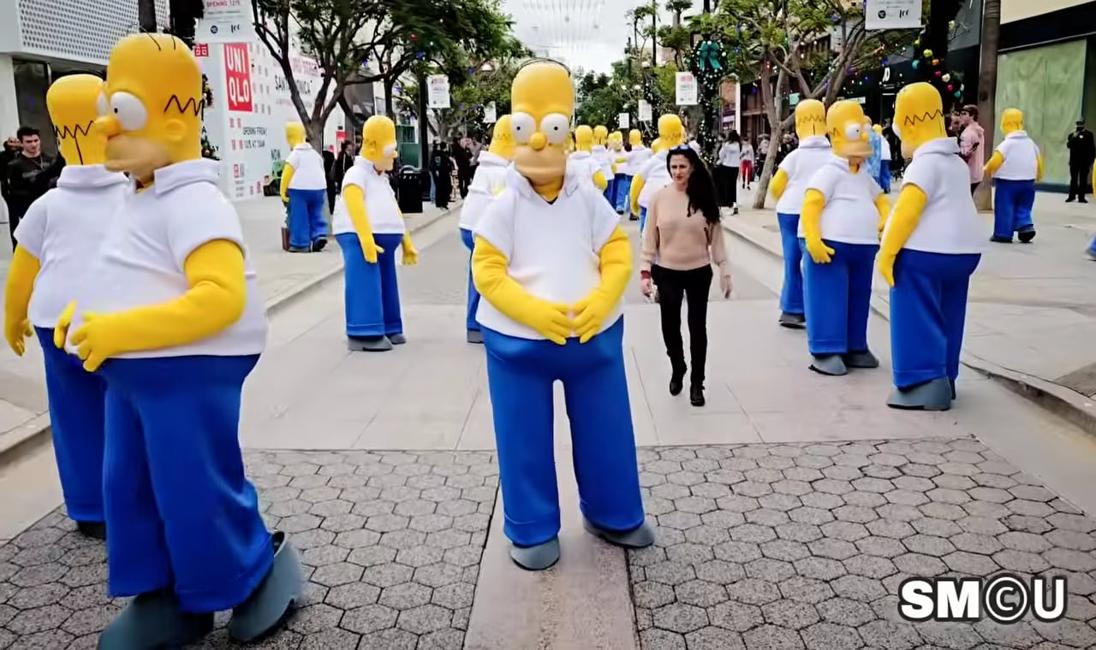Okay, so I've been diving deep into some weird internet rabbit holes lately. It all started innocently enough – a late-night Simpsons binge (as one does, right?). But then I stumbled across a forum discussing...Homer Simpson clones? And, get this, they were blaming Fortnite.
I know, I know. It sounds completely bonkers. But hear me out, because there's something surprisingly interesting (and slightly disturbing) going on here. It’s not literal clones, obviously. But the way certain personality traits and behaviors are being amplified – particularly in younger generations – is eerily reminiscent of our favorite Springfield nuclear technician.
The Springfield Effect: How Media Shapes Us
Look, pop culture always influences society. Duh. But there's something about the ubiquity of shows like The Simpsons and games like Fortnite that's creating a perfect storm. Think about it: Homer Simpson, for all his flaws (and there are many!), is also endearing. He’s lazy, impulsive, and not exactly a genius, but he’s also good-hearted, loyal, and always bounces back. These are compelling traits to many. They almost make him human.
And that's the hook, isn't it? We laugh at Homer, but we also see a bit of ourselves in him. We love him for it. He's us. But when that character is constantly reinforced – through endless reruns, memes, and now, even gaming culture – the lines start to blur. Kids growing up today are bombarded with this archetype.
But wait, there's something even more interesting here...
Fortnite, in particular, has become a massive cultural touchstone. It's not just a game; it's a social space, a platform for expression, and, yes, a breeding ground for memes. And what kind of memes thrive in Fortnite? The silly, the absurd, the outright Homer-esque.
Fortnite's Role in Meme Culture
The game's accessible to all kinds of personalities. There's something for everyone! Players are rewarded for outrageous behavior, for flaunting ridiculous skins, and for generally embracing the chaotic energy of the game. It's like a digital Springfield, where anything goes. I mean, really, think about it this way: the game actively encourages players to act in ways that, in the real world, might be considered…well, Homer-esque.
It is kind of scary, right? But I don't think we should immediately freak out.
The thing is that we should always be aware of how media we consume is affecting the way we think and act. We're always evolving, so it's very difficult to pinpoint where we will be in the future. So, instead of clones of Homer Simpson popping up all over the world, we should be wary of a potential future where things might seem a bit strange.
I've got to admit, this part fascinates me. It's not about literal clones, but about how media influences behavior and shapes cultural norms. It raises all sorts of questions about the responsibility of content creators and the potential consequences of a society saturated with certain archetypes.
Real-Life Examples: Spotting the Homers Among Us
Now, before you think I'm going completely off the rails, let's look at some real-life examples. Think about the rise of the "influencer" culture. How many YouTubers and TikTokers are essentially monetizing their own brand of Homer Simpson-esque antics? They're loud, they're goofy, they're often clueless, but they're also incredibly popular. They're getting rewarded for acting like Homer, only in a digital setting.
Or consider the way people interact online. The anonymity of the internet can embolden people to say and do things they'd never dream of in person. This can lead to impulsive decisions, reckless behavior, and a general lack of accountability. Sound familiar? I will give you a hint. It is one of Homer's best traits.
According to research from Epic Games, the makers of Fortnite, the game has over 400 million registered players worldwide. That's a lot of potential for Homer Simpson clones!
Is it Really That Bad? A Word of Caution
Now, before you start stockpiling canned goods and building a fallout shelter, let's take a step back. It's not all doom and gloom. The influence of The Simpsons and Fortnite isn't inherently negative. These platforms can also be sources of creativity, connection, and even social commentary. They can bring people together and they can provide a source of relief.
And let's not forget that Homer Simpson, for all his faults, is also a loving father, a loyal friend, and someone who ultimately tries to do the right thing. Maybe, just maybe, we can learn a thing or two from him. Especially about taking naps.
The key is to be mindful of the media we consume and the messages it sends. We need to encourage critical thinking, promote empathy, and remember that real life is not a cartoon. It's so important. Because being able to differentiate between what is real and fake are very important to not fall into an echo-chamber.
FAQ: Decoding the "Homer Simpson Clone" Phenomenon
Am I turning into Homer Simpson if I play Fortnite?
Probably not! Playing Fortnite (or watching The Simpsons) doesn't automatically transform you into a donut-loving, Duff-guzzling nuclear safety inspector. However, it's wise to be mindful of how the media you consume might be influencing your behavior. If you find yourself acting impulsively or neglecting your responsibilities, it might be time to take a break and re-evaluate.
How do I know if my kids are being negatively influenced by these shows?
The biggest concern is when kids start mimicking the negative behaviors without understanding the context or consequences. Are they becoming disrespectful, lazy, or dismissive of responsibility? Open communication is key. Talk to them about the difference between fantasy and reality, and encourage them to develop their own values and critical thinking skills. Monitor the shows that they are watching and the people they are following to get a better grasp of what is going on.
Isn't this just moral panic over new media?
There's always a tendency to worry about the effects of new technologies and forms of entertainment. And many times it turns out to be just hot air. But there is something to be aware of. But the pervasive nature of these shows, combined with the interactive nature of gaming, creates a unique situation. It's not about banning Fortnite or censoring The Simpsons, but about fostering a more critical and balanced approach to media consumption and understanding the potential influence it has on our perceptions and behaviours.
What can parents do to mitigate these potential effects?
Encourage diverse interests and activities. Promote critical thinking skills by discussing media messages and values. Set healthy boundaries for screen time and encourage real-world interactions. Lead by example by being mindful of your own media consumption habits. Balance is key. Also, being involved with your kid's interest will help you be more closer and learn what they like and do not like.
So, are we all doomed to become Homer Simpson clones? Probably not. But the influence of media on our behavior is undeniable. It's up to us to be mindful of the messages we're receiving and to cultivate our own individuality, even in a world saturated with pop culture. And maybe, just maybe, lay off the Duff for a while.





















